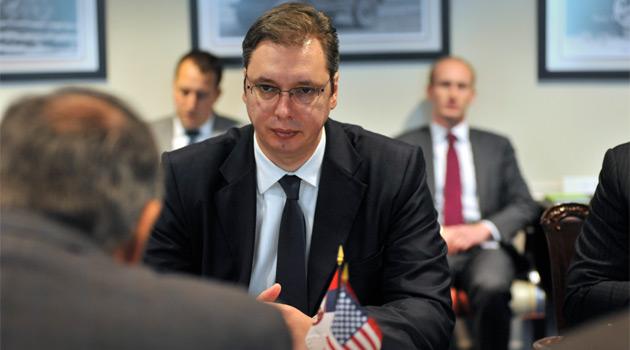Romani NGOs around Europe ask why the OSCE is researching alleged radicalization of their communities in Serbia

Representatives of Romani organizations from around Europe have contacted the head of the OSCE’s mission to Serbia to express their alarm over the 10 July 2018 announcement of a search for a “Researcher on Radicalization among the Roma Community in Serbia”. The Romani representatives say they are deeply concerned about the growing insecurity of Roma in Europe as a result of extremist antigypsyism in a number of OSCE participating States.
The letter notes that in 2005 the OSCE specifically rejected “the identification of terrorism and extremism with any religion, culture, ethnic group, nationality or race”. The authors of the letter are asking for clarification of the evidence for the alleged dissemination of extremist and radical beliefs among youth, Romani youth included, in Serbia.
The letter is signed by Dragan Beriša of Udruženje Roma Užice (Serbia) and other Serbia-based signatories, Michael Daduč of the Roma Nation Movement in London (United Kingdom) and other UK-based signatories, Dimitar Georgiev of the Human Rights Project in Sofia (Bulgaria), Nicolás Jiménez González of the Asociación Pretendemos Gitanizar el Mundo based in El Campelo (Spain) and Miroslav Klempar of Awen Amenca z.s. in Ostrava, Czech Republic. The other signatories are from Norway and Slovakia.
According to the Office of the High Commissioner for Human Rights at the United Nations, Serbia has yet to respond to a communication sent in June 2017 by Ahmed Shaheed, the UN Special Rapporteur on freedom of religion or belief, and Rita Izsák-Ndiaye, the UN Special Rapporteur on minority issues, regarding allegations that during the demolition of a religious facility in a community of Ashkali Muslims, community members were subjected to threats and physical violence by law enforcement. According to that communication, the incident involved an informal Roma, Ashkali and Egyptian (RAE) community called Zemun Polje located on the outskirts of the Serbian capital, Belgrade.
The Special Rapporteurs communicated to the authorities their understanding that while today that community is mostly comprised of persons displaced from Kosovo at the end of the 1990s, it has actually been located there for more than 40 years. In 2007 the local authority is said to have allowed the community to build a religious facility there called a mezhdit (essentially a mosque without a minaret).
In 2015 the community officially requested permission to build a bigger mezhdit. Apparently the municipality never responded one way or the other, so the community decided to begin construction.
The authorities then asked the informal community to prove their title to the land. It was impossible for the community to meet that requirement.
According to the Special Rapporteurs, the authorities apparently issued multiple calls for the construction to cease. On 23 May 2017 the authorities brought heavy equipment to the community to demolish the new mezhdit.
On that occasion they were reportedly dissuaded from carrying out the demolition by the presence of officials from the Embassy of Turkey and by the broad mobilization of the local community. A verbal agreement was reportedly made with the local Imam to negotiate a solution with the municipality within seven days.
However, at 3 AM on 26 May 2017, the authorities reportedly returned to the mezhdit accompanied by law enforcement. The electricity mains were turned off and the mezhdit was then demolished using heavy machinery.
Reportedly Internet and mobile telecommunications were suspended locally at that time. During the demolition local residents were reportedly barricaded inside their homes and not allowed to leave them.
The demolition is said to have lasted three hours. According to the Special Rapporteurs, it is alleged that RAE community members were physically and verbally abused by law enforcement during the demolition and that at least one person was detained by them for several hours.
An official rejection of the 2015 construction permit request was then delivered on 29 May 2017 after the mezhdit had been destroyed. Members of the community have asserted to the UN that the Serbian authorities have never once officially approved construction licenses for any Muslim religious establishments during the last 50 years.
Interestingly enough in the context of the current research being sought by the OSCE, the local RAE community told the Special Rapporteurs last year that they believed expanding their worship facilities would be essential to preventing radicalization in their community. The Special Rapporteurs proceeded to express their grave concern over the demolition, the alleged use of force and threats, and the lack of permits issued for Muslim minority facilities in Serbia.
Serbia was asked to investigate the accuracy of the facts communicated to them, to clarify the legal basis for the demolition, to explain what measures exist to ensure that religious minorities in particular are protected in Serbia, and to respond to the Special Rapporteurs within 60 days. Reportedly the Serbian authorities have yet to do so.
